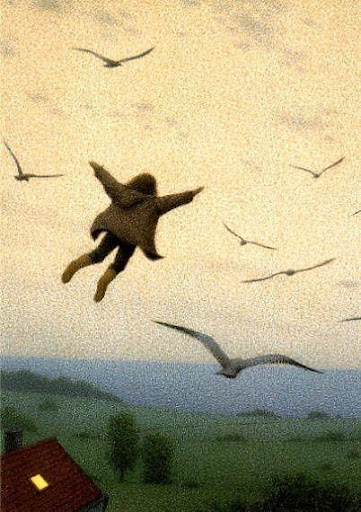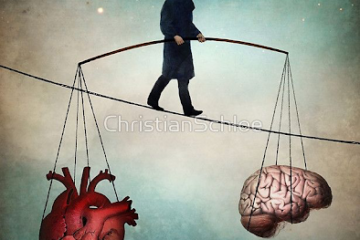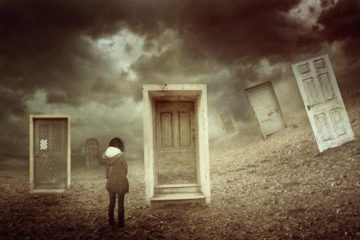
Beauty’s Residence – When the True Self Comes Home
Every one of us is shadowed by an illusory person: a false self. This is the man I want to be but who cannot exist, because God does not know anything about him. And to be unknown of God is altogether too much privacy. Thomas Merton
We all long to be known. We hunger for contact with our deep inner beauty. This essence is the child’s heart Christ refers to when He points to the Kingdom and its nature. Our false self, full of pride and self-sufficiency avoids the deaths needed to enter the Kingdom thus cannot ultimately submit to its own healing. This beauty becomes hidden and the flaw which could be redeemed and made whole remains an impediment to artistic vision and real life.
Sin is a very ill-defined presence in our lives. Because our early years are filled with moralisms which are needful in a child’s ethical life, we often enter adult life with a grand misunderstanding about sin. We see sin merely as acts that we do rather than a condition of our very being that is inclined to live in darkness.
Sin is a denial of radical need. All our contingencies, our unrealities, are suppressed as we go about life seeking our own way as our source. When our way of seeing and knowing are arbitrated through this false self, beauty is dull or even eclipsed.
This place of radical need is always connected to some hurt or lack in our lives. The false self is unable to reveal this profound neediness thus must either pump up what beauty, knowledge or power one feels is resident and then maintain that perception through doing acts that corroborate that naming. In other words, I will tell you who I am knowing full well I am an imposter. But, the imposter is all I know so what am I to do? I must create a world where my friends and acquaintances will tell my false self the lie. That lie is this…This fabrication of self which we all agree to collectively is the real self. The ultimate downside of this manner of defining and living robs of us of a deeper inner self knowing. Our true self or essence is now clouded or hidden from our own sight and that of others.
Sensuality is the manner in which the human discovers the glory of his/her creation. For artists, the health and maintenance of this human quality is essential. When our sensuality is tainted by sin and the false self, our inner flaws are things to be shunned and despised. Thus, a deep part of our very being is now estranged and sent away from our consciousness. This is what Jung talks about when he refers to the shadow. This is the unconscious part of our woundedness and sin we hide from even ourselves thus only see it emerge in habits, addictions, and denied feelings and thoughts when they unwittingly reveal themselves. Its impact on our art is powerful as we become further estranged from our true inner essence, our authentic individuality.
There is an expensive price to pay life for the exile of our deepest loving of our true self. The self-inflicted banishment may last for years until we are too broken and emptied to hide or present the false self. Or more tragically we may live an entire life exalting our gifts, hoarding the praise, lifting up our own beauty never to see or know the glory of our beloved vulnerability. It is this very crack in the soul, the dim light of eternity hidden so unfathomably from our rational selves that secrets this darker beauty.
Meister Eckhart said, “Stand still and do not waver from your emptiness; for at this time you can turn away, never to turn back again.” For the creative person, this willingness to enter the risk filled void of the false self and look for redemption is essential for the creative atonement of the flaw. Because we are fashioned to be in communion with the Most High, we are meant to see and know the sensual beauty of life. When our own being is dark and foreboding and yes “evil” in our own eyes, we are orphans.
Could beauty actually be the redeemed vision of one made whole? Is beauty coming into our rightful position with the Father thus seeing our individuality flourish and prosper? For many of us the degree of self protection is overwhelmingly draining. Tired and weary from the false self operating our insight and reflection, we get lost in the destruction of our selves by life, sin, and the collective brokenness and remain there. Deeply imprinted on our very heart is the wound or the flaw. We must hide it from all and even ourselves lest we acknowledge the inner depths of our brokenness and distance from the Father.
What I am slowly learning is that beauty is not all brightness and light. Even scripture tells us that God created out of a void and there was darkness upon the earth. This idea of darkness and the wound have been with us since the beginning. Is there a new way to imagine and name the darkness and the wound?
Once again I refer to my mentor John O’Donohue. He tells us that, “The luminous beauty of great art so often issues from the deepest, darkest woundings. We always seem to visualize a wound as a sore, a tear on the skin’s surface. The protective outer layer is broken and the sensitive interior is invaded and torn. Perhaps there is another way to image a wound. It is the place where the sealed surface that keeps the interior hidden is broken. …While the wound is open, new light flows into the helpless dark and the inner night of the body weeps through the wound. In the rupture and pain it causes, a wound breaks the silence; it cries out. It ruptures through the ordinary cover of words we put on things.”
A submitted imagination will allow the false self to play its hand, drain its rage, shout is epitaphs until its true powerlessness is revealed. What was once concealed is now open to renaming. What had blackened the heart and tossed the soul into despair now appears as an extravagant grace. He was never impressed with the false self for He knew him not. He has only known who He made you to be. He sees you through the eyes of His Son so even your sin is covered and atoned. Now your deepest image of self is reflected through His gaze. In His hospitality of gracious wonderings and extravagancies do we encounter this truly safe place to create. It is not free from darkness but in a bizarre twist of irony and paradox we discover the God beyond our limited naming. As much as we struggle to properly name the created world how much more do we find our knowledge of the Father diminished and antiquated? It is at this threshold you are introduced to your true self and the very heart of the Father.
Let me close with another Thomas Merton quote. I am taking liberties here as I am going to replace the word ”contemplative(s)” with the word “artist(s)”. Know that I have taken such freedoms and hope I do not take away from Merton’s ultimate intention.
God seeks Himself in us, and the aridity and sorrow of our heart is the sorrow of God who is not known to us, who cannot yet find Himself in us because we do not dare to believe or trust the incredible truth that He could live in us, and live there out of choice, out of preference. But indeed, we exist solely for this, to be the place He has chosen for His presence, His manifestation in the world. His epiphany. But we make all this dark and inglorious because fail to believe it, we refuse to believe it. It is not that we hate God, rather that we hate ourselves, despairs of ourselves. If we once began to recognize, humbly, but truly, the real value of our own self, we would see that this value was the sign of God in our being, the signature of God upon our being.
The artist (contemplative) is not the man who has fiery visions of the cherubim of God on their imagined chariot, but simply he who has risked his mind in the desert beyond language and ideas where God is encountered in the nakedness of pure trust, that is to say in the surrender of our own poverty and incompleteness in order no longer to clench our minds in a cramp upon themselves, as if thinking made us exist. The message of hope the artist (contemplatives) offers you, then, is not that you need to find your own way through the jungle of language and problems that today surround God; but that whether you understand or not, God loves you, is present to you, lives in you, dwells in you, calls you, saves you, and offers you an understanding and light which are like nothing you ever found in books or heard in sermons. The artist (contemplative) has nothing to tell you except to reassure you and to say, that if you dare to penetrate your own silence and dare to advance without fear into the solitude of your own heart, and risk sharing that solitude with the lonely other who seeks God through you and with you, then you will truly recover the light and the capacity to understand what is beyond words and beyond explanations because it is too close to be explained; it is the intimate union in the depths of your own heart, of God’s Spirit and your secret inmost self, so that you and He are in all truth one Spirit, I love you in Christ. Thomas Merton 1915-1968 American Cistercian Monk



0 Comments